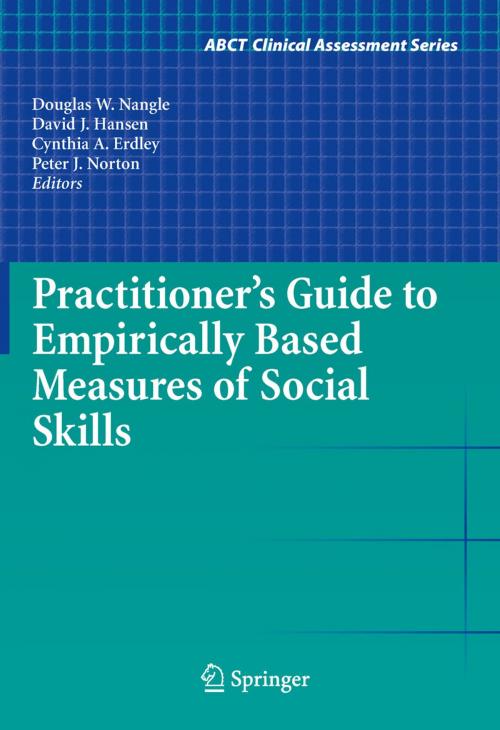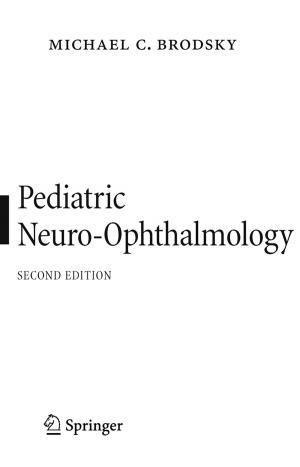Practitioner's Guide to Empirically Based Measures of Social Skills
Nonfiction, Health & Well Being, Psychology, Clinical Psychology, Psychotherapy, Medical| Author: | ISBN: | 9781441906090 | |
| Publisher: | Springer New York | Publication: | December 16, 2009 |
| Imprint: | Springer | Language: | English |
| Author: | |
| ISBN: | 9781441906090 |
| Publisher: | Springer New York |
| Publication: | December 16, 2009 |
| Imprint: | Springer |
| Language: | English |
Social skills are at the core of mental health, so much so that deficits in this area are a criterion of clinical disorders, across both the developmental spectrum and the DSM. The Practitioner’s Guide to Empirically-Based Measures of Social Skills gives clinicians and researchers an authoritative resource reflecting the ever growing interest in social skills assessment and its clinical applications. This one-of-a-kind reference approaches social skills from a social learning perspective, combining conceptual background with practical considerations, and organized for easy access to material relevant to assessment of children, adolescents, and adults. The contributors’ expert guidance covers developmental and diversity issues, and includes suggestions for the full range of assessment methods, so readers can be confident of reliable, valid testing leading to appropriate interventions.
Key features of the Guide:
- An official publication of the Association for Behavioral and Cognitive Therapies
- Describes empirically-based assessment across the lifespan.
- Provides in-depth reviews of nearly 100 measures, their administration and scoring, psychometric properties, and references.
- Highlights specific clinical problems, including substance abuse, aggression, schizophrenia, intellectual disabilities, autism spectrum disorders, and social anxiety.
- Includes at-a-glance summaries of all reviewed measures.
- Offers full reproduction of more than a dozen measures for children, adolescents, and adults, e.g. the Interpersonal Competence Questionnaire and the Teenage Inventory of Social Skills.
As social skills assessment and training becomes more crucial to current practice and research, the Practitioner’s Guide to Empirically-Based Measures of Social Skills is a steady resource that clinicians, researchers, and graduate students will want close at hand.
Social skills are at the core of mental health, so much so that deficits in this area are a criterion of clinical disorders, across both the developmental spectrum and the DSM. The Practitioner’s Guide to Empirically-Based Measures of Social Skills gives clinicians and researchers an authoritative resource reflecting the ever growing interest in social skills assessment and its clinical applications. This one-of-a-kind reference approaches social skills from a social learning perspective, combining conceptual background with practical considerations, and organized for easy access to material relevant to assessment of children, adolescents, and adults. The contributors’ expert guidance covers developmental and diversity issues, and includes suggestions for the full range of assessment methods, so readers can be confident of reliable, valid testing leading to appropriate interventions.
Key features of the Guide:
- An official publication of the Association for Behavioral and Cognitive Therapies
- Describes empirically-based assessment across the lifespan.
- Provides in-depth reviews of nearly 100 measures, their administration and scoring, psychometric properties, and references.
- Highlights specific clinical problems, including substance abuse, aggression, schizophrenia, intellectual disabilities, autism spectrum disorders, and social anxiety.
- Includes at-a-glance summaries of all reviewed measures.
- Offers full reproduction of more than a dozen measures for children, adolescents, and adults, e.g. the Interpersonal Competence Questionnaire and the Teenage Inventory of Social Skills.
As social skills assessment and training becomes more crucial to current practice and research, the Practitioner’s Guide to Empirically-Based Measures of Social Skills is a steady resource that clinicians, researchers, and graduate students will want close at hand.















